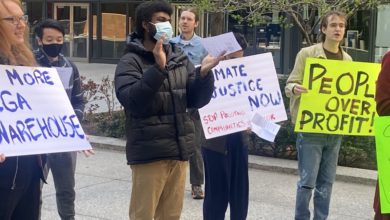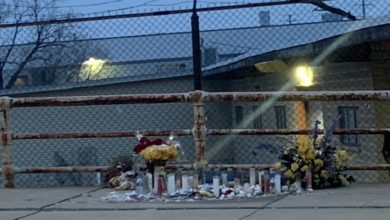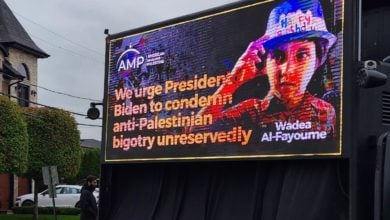On Feb. 22, the Chicago Board of Education voted to end Chicago Public Schools’ contract with the Police Department. The Board’s resolution calls for both the removal of all school-based police officers — known as school resource officers — as well as the creation of a new district-wide policy around school safety.
Within a matter of weeks, a bill was filed in the Illinois state legislature aiming to reverse the Board’s decision. A bipartisan effort backed primarily by the Democratic Party, including Illinois House Speaker Chris Welch, HB 5008 seeks to amend the Illinois School Code to make the hiring or firing of school resource officers the responsibility of Local School Councils. In effect, politicians from both major parties are uniting to prevent police from being kicked out of public schools.
The City of Chicago has a complex, shifting arrangement of forces governing the operation of the public school system. Standing at the center of this current conflict is the role of the Local School Councils on the one hand, and the Board of Education on the other.
Local School Councils serve as the governing body of the school. They were formed in 1988 as part of a reform effort to make school governance more democratic. LSCs are composed of representatives from the school community, including the principal, educators, parents, community members and students. The responsibilities of each LSC are to review and approve the school budget, create the school’s Continuous Improvement Work Plan, and select and evaluate the principal.
The Board of Education, as it is currently constituted, is a body appointed by the Mayor. However, due to years of organizing and activism, the Board will be transitioning into a fully elected representative body in the coming years. As the current Board was appointed by Brandon Johnson, a former Chicago Teachers Union organizer, it represents a largely progressive trend of the movement for educational justice and equity in Chicago. This is a sharp break from the previous Boards under mayors like Rahm Emanuel and Lori Lightfoot who repeatedly took positions antithetical to a thriving public education system.
The Board’s decision to take police out of schools did not fall from the sky. The demand for “Cops Out CPS” has been raised for years, and picked up steam particularly in 2020 during the revolt against racism which swept the country after the police killings of Ahmaud Arbery, George Floyd and Breonna Taylor. Spearheaded by current and former CPS students, protests were organized regularly to pressure both LSCs and former Mayor Lightfoot’s Board of Education to remove police officers from public schools. Ultimately, the balance sheet was mixed: several important victories were won on the LSC level which kicked cops out of individual high schools, while the Board ultimately rejected the movement’s demands.
The decision by the current Board to remove SROs and replace them with a holistic school safety policy should be seen as a hard-earned, if delayed, victory of movement organizing in 2020. Black and Brown student organizers took to the streets and sowed the seeds of a police-free future for public education; this courageous work continues to bear fruit.
It is in this context that the Illinois Democratic Party’s attempt to rewrite policy to keep police in schools must be viewed. The claims that the bill will ‘strengthen democracy’ ring hollow — how can it be democratic if it is, in essence, a nullification of a popular movement demand? How can it be democratic when most of the bill’s sponsors do not even represent constituencies in Chicago?
Under the guise of democracy, Democratic Party leaders are seeking to limit the decision-making authority of the Board of Education as it transitions into a fully elected body.
Crucially, research has clearly demonstrated that police presence does not keep students safer, while restorative justice practices have shown significant benefits. Complementing this research, we must note that 47% of CPS students are Latino, 35% are Black and only 11% are white. In sum, more than 80% of the student body is Black or Brown, the communities most severely harmed by policing. Clearly, it is absurd on its face to enshrine as a ‘right’ the ability for LSCs to make demonstrably unsound and dangerous decisions regarding school safety.
It is also important to note that SROs are compensated with funding from the district. This is why LSCs have, in recent years, been able to remove SROs stationed at their schools. With Chicago Public Schools predicting a budget shortfall of nearly $400 million for the upcoming school year, there are several questions which should be posed to all representatives sponsoring this bill. Why not instead advocate for greater state-level funding for Chicago Public Schools? Why fight to keep police officers in schools while starving the budget of the fourth-largest school district in the United States?
We must also look inward as public school parents, educators and community members. The trajectory for school safety is stark and unequivocal: either our money goes towards evidence-based restorative practices which promote student safety and enrich the learning experience, or it goes toward further entrapping Black, Brown and poor youth in the criminal legal system.
Progressives and public school advocates must reject this attempt by politicians from both mainstream parties to wrest this movement victory from us. If the anti-democratic maneuvers of this bipartisan attack are successful, the LSCs must become critical arenas of the struggle against the school-to-prison pipeline. The future of public education must be one free from the repressive force of police and prisons.
Feature photo: Illinois State Capitol (CC BY 2.0 DEED). Photo credit: Daniel X. O’Neil






